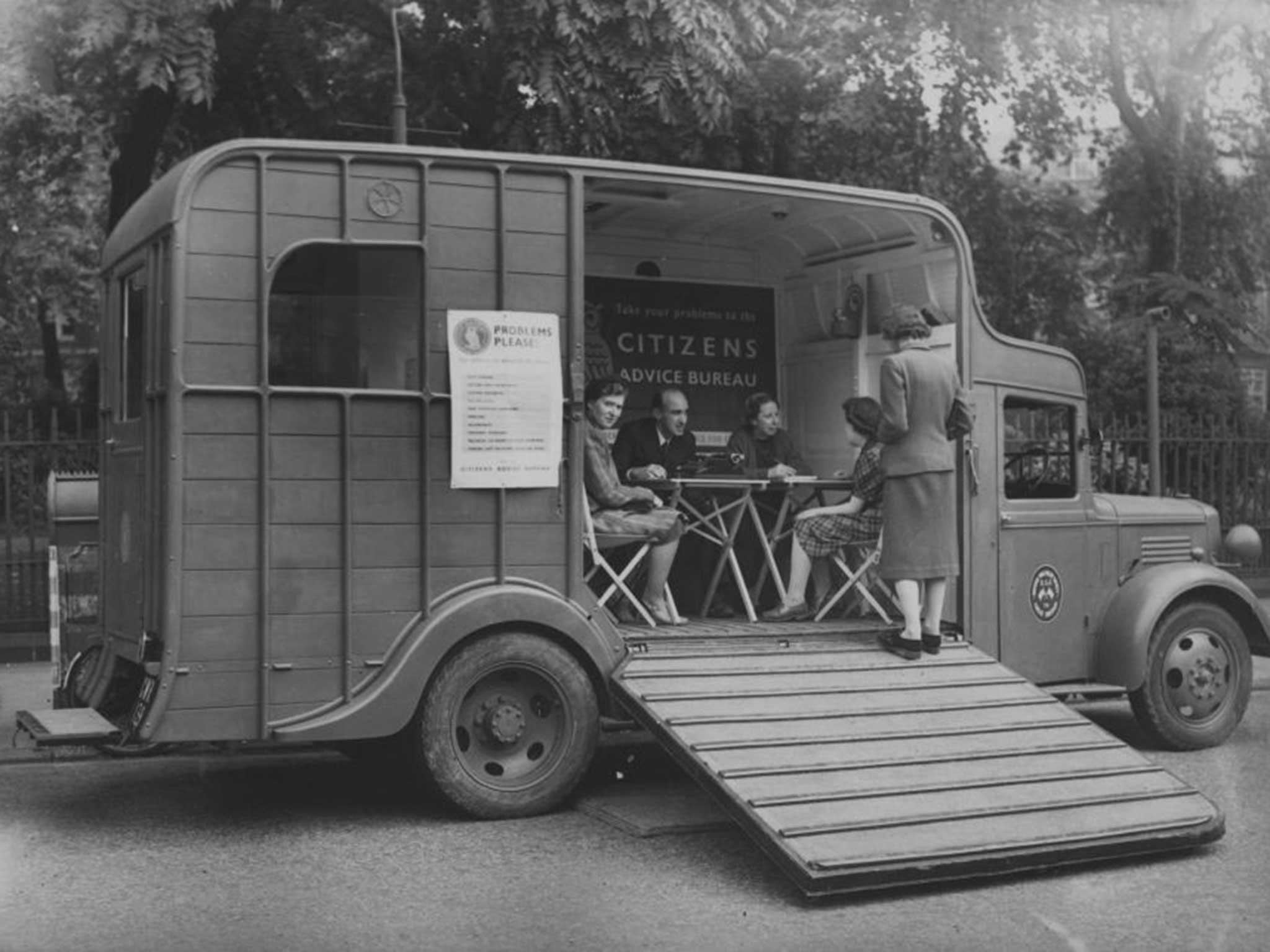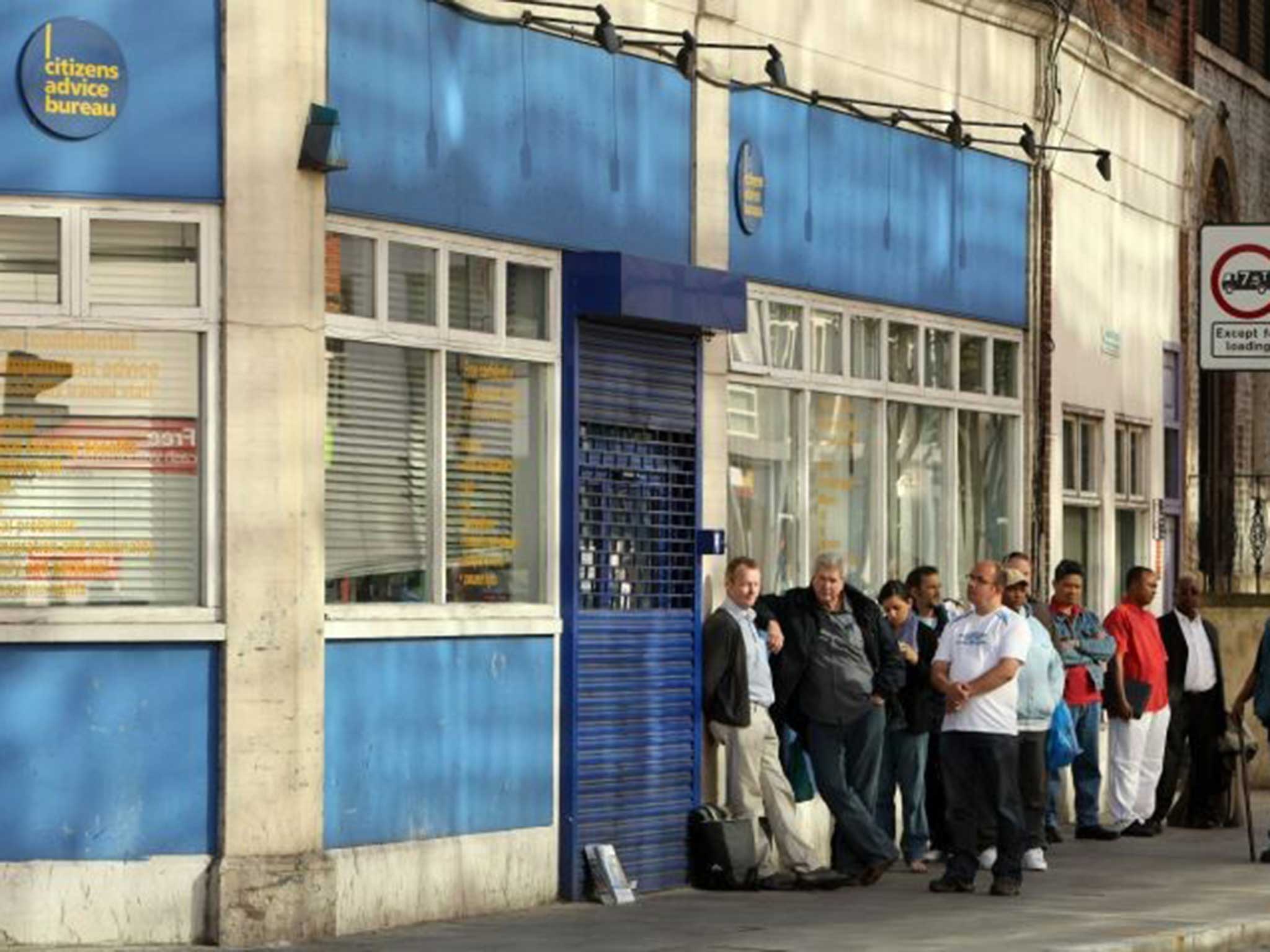Citizens Advice Bureau 75 year anniversary: Geese too loud? Lost false teeth? We can help! Celebrating seven decades of the CAB
Despite budget cuts, the CAB is still helping people in difficulty

Your support helps us to tell the story
From reproductive rights to climate change to Big Tech, The Independent is on the ground when the story is developing. Whether it's investigating the financials of Elon Musk's pro-Trump PAC or producing our latest documentary, 'The A Word', which shines a light on the American women fighting for reproductive rights, we know how important it is to parse out the facts from the messaging.
At such a critical moment in US history, we need reporters on the ground. Your donation allows us to keep sending journalists to speak to both sides of the story.
The Independent is trusted by Americans across the entire political spectrum. And unlike many other quality news outlets, we choose not to lock Americans out of our reporting and analysis with paywalls. We believe quality journalism should be available to everyone, paid for by those who can afford it.
Your support makes all the difference.It was born on the eve of the Second World War to be "at service of any citizen in difficulty" by offering advice on housing, food and debt. Seventy-five years later, the Citizens Advice Bureau (CAB) is still true to that founding principle, despite facing new challenging circumstances.
In September 1939, the CAB was established with the creation of 200 emergency centres across the country. Today it deals with issues from the fallout of the bedroom tax, benefits cuts and fraud, but in wartime it helped to replace lost ration books and put wives and parents in touch with lost sons and husbands in prisoner-of-war camps.
When war broke out, the new centres – set up by the government but run by volunteers – acted as "clearing houses for family and personal problems that abound from war conditions". Volunteers dealt with the tragedy of war, and after it with many far more light-hearted problems.
These ranged from a request from Drumchapel near Glasgow for help to find a goldfish, to a message from two men in Malta for the Monmouthshire office to track them down "two young ladies between the ages of 18 to 25 who are domesticated and don't use too much make-up".
Other bizarre queries included a gentleman who had lost his false teeth, a struggling Argyll house-hunter claiming she was descended from the "King of Argyll" and a lady who wrote to see what could be done about her flock of rather loud geese. More routine problems were the loss of ration books and, as today, debt quickly became a key issue as incomes fell when men were called up for military service.
In post-war Britain, the Citizens Advice Bureau network's funding was slashed as it struggled to cope with a housing crisis and office closures. Government funding was restored in the 1960s and 70s when the CAB turned its primary focus to consumer protection and providing debt advice. Then in the recession of the 1980s and 90s, it took on a lobbying role, before setting up the tenancy protection scheme in 2004, ranking it as one of its biggest triumphs.

The body's chief executive, Gillian Guy, says it has a "proud history" and that "the future of our service is in good shape". But across the country bureaux are facing closure or mergers because of local council cuts.
This week, as the charity gathers at its annual general meeting to celebrate its 75th anniversary, it will hear again that it faces challenging circumstances and that a lack of funds means that it is still too hard for some people to seek its help.
Although Citizens Advice is a national charity, each local bureau is a separate charity and is responsible for raising much of its own funds. According to an analysis of CAB figures by The Independent on Sunday, 137 of these bodies have folded in the past 10 years. Most of their work is funded by local authorities, which have slashed budgets in recent years, leaving the bureaux to rely on lottery and other charity funding as well as grants from the central Citizens Advice charity. The Coalition's 2013 removal of £19m in legal aid funding hit the charity hard.
Citizens Advice head office, which provides targeted advice, funding to local bureaux and a helpline, is financially secure, according to its annual report. However, it admitted that last year was "dominated by continuing economic challenges" not just for its clients, but also for its 382 local offices. It added that "shrinking public spending" has forced it to "take tough choices", admitting that it will have to continue to focus its efforts on phone services.
Despite this, the work of the CAB's 21,500 volunteers and 7,000 paid staff is what the charity is best known for. According to the charity, volunteers helped "two million people find their way forward" in the past year, took 1.2 million consumer advice calls and helped its clients to reschedule or write off £300m worth of debt.
Join our commenting forum
Join thought-provoking conversations, follow other Independent readers and see their replies
Comments